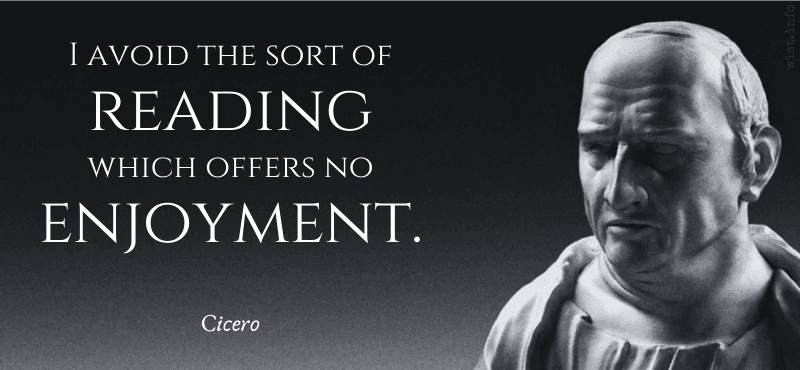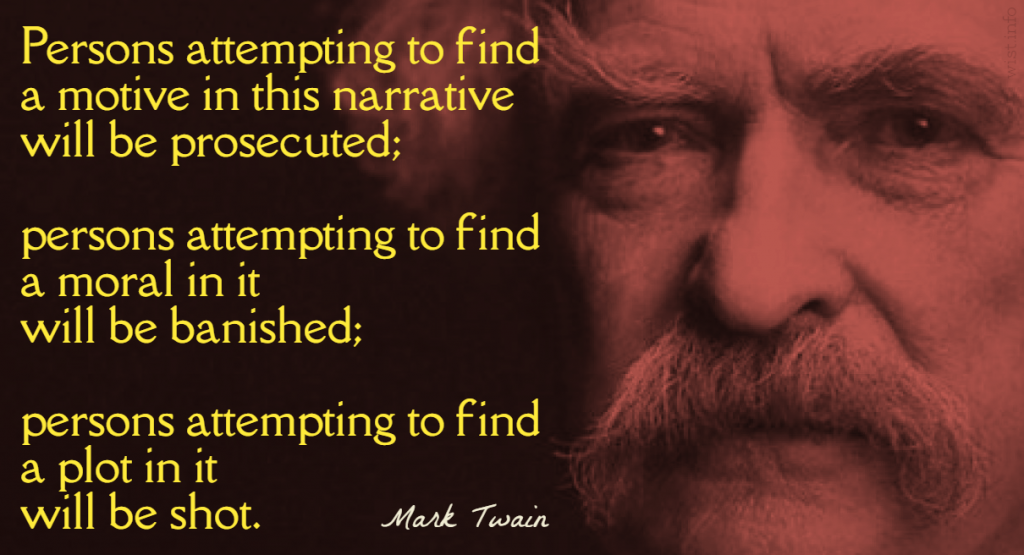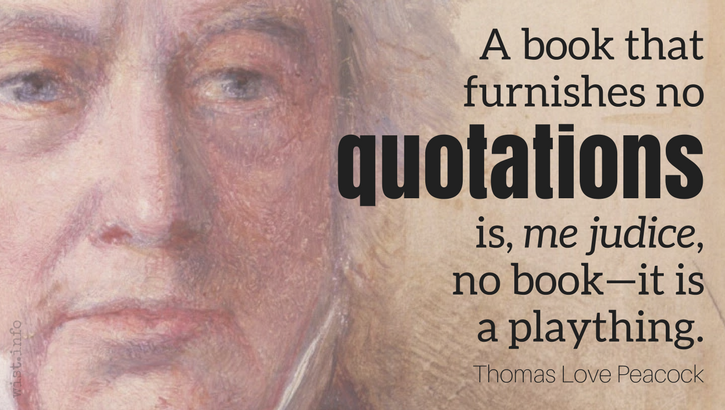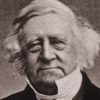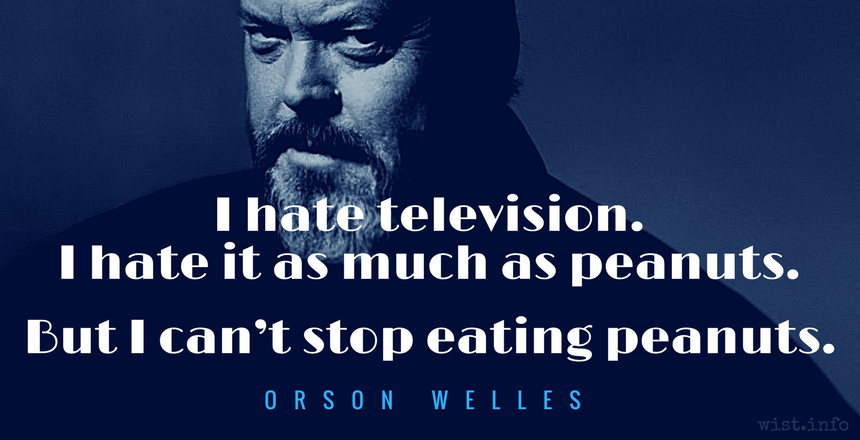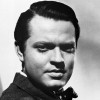Where other powers of entertainment are wanting, the true philosopher will derive benefit from such as are given.
Quotations about:
entertainment
Note not all quotations have been tagged, so Search may find additional quotes on this topic.
For what do we live, but to make sport for our neighbors and laugh at them in our turn?
One cannot have too large a party. A large party secures its own amusement.
To feasts and theatres you love to go
With men of rank and, when you chance to meet.
To lounge with them about a portico
Or street.
They let you bathe and dine with them, but what
Your dullard pride will never comprehend
Is that you are their mountebank, and not
Their friend.[Quod te diripiunt potentiores
Per convivia, porticus, theatra,
Et tecum, quotiens ita incidisti,
Gestari iuvat et iuvat lavari:
Nolito nimium tibi placere.
Delectas, Philomuse, non amaris.]Martial (AD c.39-c.103) Spanish Roman poet, satirist, epigrammatist [Marcus Valerius Martialis]
Epigrams [Epigrammata], Book 7, epigram 76 (7.76) (AD 92) [tr. Pott & Wright (1921), “The Toady”]
(Source)
(Source (Latin)). Alternate translations:
That great men court thee every where,
At feasts, and at the Theater,
And would, as oft as well may bee,
Walk, bathe, or take the ayre with thee;
Doe not admire thy selfe for it.
Tis not their love, but their delight.
[tr. May (1629), 7.75]
When dukes to town ask thee to dine,
To rule their roast, and smack their wine,
Or take thee to their country-seat,
To mark their dogs, and bless their meat,
Ah! dream not on preferment soon:
Thou'rt not their friend, but their buffoon.
[tr. Hoadley (fl. 18th C)]
All the great men take you away
To dinner, coffee-house, or play.
Nor happier are, than when you chance
To hunt with them, or take a dance.
Yet do not pride yourself too soon:
You're not a friend, but a buffoon.
[tr. Hay (1755)]
Thee the great may tear away
To the banquet, porch, or play;
And with thee may make their pride,
Or to talk, or bathe, or ride.
Yet thou may'st mistake with ease.
Thou delight'st; but dost not please.
[tr. Elphinston (1782), Book 7, ep. 4]
That men of rank take you along with them almost by force to their banquets, to porticos, and theatres; and that when they meet you they have pleasure in carrying you in their vehicles, and going along with you to the same baths; -- let not this puff you up with self-satisfaction, Philomusus; all this is because you are entertaining, not because you are beloved.
[tr. Amos (1858)]
Though the great hurry you off to their banquets, and walks in the porticoes, and to the theatres; and though they are delighted, whenever you meet them, to make you share their litters, and to bathe with you, do not be too vain of such attentions. You entertain them, Philomusus; you are not an object of their regard.
[tr. Bohn's Classical (1859)]
Because men of influence vie in hurrying you off to entertainments, colonnades, theatres, and enjoy, whenever you happen to meet them, being carried in litters with you and enjoy bathing with you, by no means fancy yourself too much. You entertain them, Philomusus, you are not loved.
[tr. Ker (1919)]
If important people compete for your company at dinner tables an din the colonnades and theaters and like to ride with you and bathe with you as often as you turn up, don't get too conceited. It's your company they like, Philomusus, not you.
[tr. Shackleton Bailey (1993): literally, "you give them pleasure, you are not loved."]
The rich folk ask you out to dine,
Or ride with them, or drink their wine,
Or take a bath, or just hang out --
Now Philomusus, please don't pout --
You only entertain their crew:
They're really not so into you.
[tr. Ericsson (1995)]
If powerful men take you up,
at meals, theatres, and porticos,
like riding and bathing with you,
wherever you happen to go,
don’t be too proud, Philomusus:
you give pleasure, it isn’t love.
[tr. Kline (2006), "The Reality"]
If powerful men -- at banquets, porticoes,
and plays -- compete to have you by their side;
if every time they meet you, they’re delighted
to offer you a hot bath or a ride;
don’t get too vain about it, Philomusus.
They love not you, but pleasure you provide.
[tr. McLean (2014)]
See Ben Jonson, "To Mime," which ends, "Men love thee not for this: They laugh at thee."
The person, be it gentleman or lady, who has not pleasure in a good novel must be intolerably stupid.
Your body is not a temple, it’s an amusement park. Enjoy the ride.
Anthony Bourdain (1956-2018) American chef, author, travel documentarian
Kitchen Confidential, “Second Course” (2000)
(Source)
While often framed around Bourdain's self-destructive lifestyle, in this context he's discussing being adventuresome when selecting places to dine, including taking some risks in order to gain new food experiences.
There is a class of people wanting to be called philosophers, who are said to have produced many books actually in Latin. For my part I don’t despise them — I’ve never read them. But since those selfsame writers proclaim that what they write is neither systematic nor properly subdivided nor correct nor polished in style, I pass by reading what would bring no pleasure.
[Est enim quoddam genus eorum qui se philosophos appellari volunt, quorum dicuntur esse Latini sane multi libri; quos non contemno equidem, quippe quos numquam legerim; sed quia profitentur ipsi illi qui eos scribunt se neque distincte neque distribute neque eleganter neque ornate scribere, lectionem sine ulla delectatione neglego.]
Marcus Tullius Cicero (106-43 BC) Roman orator, statesman, philosopher
Tusculan Disputations [Tusculanae Disputationes], Book 2, ch. 3 (2.3) / sec. 7 (45 BC) [tr. Douglas (1990)]
(Source)
(Source (Latin)). Alternate translations:
For there is a certain Set of such as assume to themselves the name of Philosophers, who are said to have Books enough in Latin, which I do not despise, for I have never read them; but because the Authors profess themselves, that they write neither with distinction of Terms, nor distribution of Parts, nor elegancy of Language, nor any Ornaments; I neglect to give that reading which is no ways delightful
[tr. Wase (1643)]
For there is a farther certain tribe who would willingly be called philosophers, whose books in our language are said to be numerous, which I do not despise, for indeed I never read the: but because the authors themselves declare that they write without any regularity or method, without elegance or ornament: I do not choose to read what is so void of entertainment.
[tr. Main (1824)]
For there is a certain race, who wish to be called philosophers, whose Latin books, indeed, are said to be numerous, which I have no contempt for, really, because I never read them; but, since their authors themselves profess to write without either order or method, ornament or elegance, I neglect a reading which affords me no delight.
[tr. Otis (1839)]
For there is a certain class of them who would willingly be called philosophers, whose books in our language are said to be numerous, and which I do not despise, for indeed I never read them: but still because the authors themselves declare that they write without any regularity, or method, or elegance, or ornament, I do not care to read what must be so void of entertainment.
[tr. Yonge (1853)]
There is, indeed, a certain class of men who want to be called philosophers, who are said to have written many Latin books, which I do not despise, because I have never read them; but inasmuch as their authors profess to write with neither precision, nor system, nor elegance, nor ornament, I omit reading what can give me no pleasure.
[tr. Peabody (1886)]
There is a certain class of authors, who wish to be called philosophers, and who have apparently published many books in Latin. I do not, indeed, condemn them, because I never read them, but because they themselves confess that they have not written their books clearly or in a well-arranged manner, nor elegantly or with any ornament. I avoid the sort of reading which offers no enjoyment.
[tr. @sentantiq (2015)]
There exists a class of men who lay claim to the title of philosophers and are said to be authors of a great many books in Latin. These I personally do not despise, for the reason that I have never read them; but as the writers of these books on their own admission avoid in what they write a systematic approach, due subdivision, correctness, or a polished style. I have no interest in reading what brings no pleasure.
[tr. Davie (2017)]
For indeed it is possible that a man may think well, and yet not be able to express his thoughts elegantly; but for any one to publish thoughts which he can neither arrange skilfully nor illustrate so as to entertain his reader, is an unpardonable abuse of letters and retirement: they, therefore, read their books to one another, and no one ever takes them up but those who wish to have the same licence for careless writing allowed to themselves.
[Fieri autem potest, ut recte quis sentiat et id quod sentit polite eloqui non possit; sed mandare quemquam litteris cogitationes suas, qui eas nec disponere nec inlustrare possit nec delectatione aliqua allicere lectorem, hominis est intemperanter abutentis et otio et litteris. Itaque suos libros ipsi legunt cum suis, nec quisquam attingit praeter eos, qui eandem licentiam scribendi sibi permitti volunt.]
Marcus Tullius Cicero (106-43 BC) Roman orator, statesman, philosopher
Tusculan Disputations [Tusculanae Disputationes], Book 1, ch. 3 (1.3) / sec. 6 (45 BC) [tr. Yonge (1853)]
(Source)
Source (Latin). Alternate translations:
Now it is possible, that one may have true Conceptions, and yet not be able to express his Notions in proper Terms; but for a man to commit his thoughts to writing for the publick, who can neither put them in due method, nor illustrate them with clear Proofs, nor by any delightful Ornaments entertain his Reader, is the part of one that at no rate abuses his own time, and the benefit of Writing. Here∣upon they read their own Books among themselves, nor doth any one else meddle with them, but they that expect allowance to write after the same loose fashion.
[tr. Wase (1643)]
For indeed it may be that a man may think well, and yet not be able to express his thoughts elegant; but for any one ot publish thoughts which eh can neither methodize, nor illustrate nor entertain his reader, is an unpardonable abuse of letters and retirement: they, therefore, read their books to one another, which were never taken up by any but those who claimed the same privilege of writing.
[tr. Main (1824)]
For it may very well happen, that a man may think rightly, and yet be unable to give utterance to his sentiments with sufficient elegance. But, for any one to consign his thoughts to letters, who can neither arrange them with method, nor make them intelligible by illustration, nor attract the reader with any delight, is the part of a man who rashly abuses both his leisure and literature. And, therefore, let them read their books themselves with their friends; nor let them be touched by any, except by those who are like to need the same indulgence for the same license in writing.
[tr. Otis (1839)]
One may think correctly, yet be unable to give elegant expression to what he thinks; and in that case for a man to commit his thoughts to writing when he can neither arrange them, nor illustrate them, nor attract readers by anything that can give them delight, is the part of a man who outrageously abuses both leisure and letters. Such writers read their own books with their intimate friends, nor does any one else touch them except those who crave for themselves like liberty of writing.
[tr. Peabody (1886)]
Even when they have their arguments in order, they don't express them with any flair. They waste their free time -- and do a discredit to literature -- when they commit thoughts to writing without knowing how to arrange or enliven them or give any pleasure to the reader. And so they just end up reading each other's books! No one pays attention to them except people who hope to qualify for the same writer's licence.
[tr. Habinek (1996)]
But it can happen that someone may have a good thought which he cannot express well.
[tr. @sentantiq (2016)]
It is possible for a man to hold the right views but be incapable of expressing these with any elegance; but that anyone should entrust his thoughts to writing, without the ability to arrange them or to express them with clarity, or to attract the reader by offering him some pleasure, is characteristic of a man who is making an ill-disciplined misuse of both leisure and writing. The result is these fellows read their own books to their own circle and no one touches them except those who wish to be permitted the same freedom in writing.
[tr. Davie (2017)]
A successful party is a creative act, and creation is always painful.
Phyllis McGinley (1905-1978) American author, poet
“Party Line,” Ladies’ Home Journal (1962)
(Source)
Later reprinted in Sixpence in Her Shoe (1964).
Moral passion without entertainment is propaganda, and entertainment without moral passion is television.
Persons attempting to find a motive in this narrative will be prosecuted; persons attempting to find a moral in it will be banished; persons attempting to find a plot in it will be shot.
— By Order of the AuthorMark Twain (1835-1910) American writer [pseud. of Samuel Clemens]
The Adventures of Huckleberry Finn, “Notice” (1884)
(Source)
I’m not sure why it happened, and I’m not certain at all when it happened, but at some point, wanting a happy ending became uncool. Maybe it’s the relentless (and again, highly flawed) criticism that “such things aren’t realistic.” To which my response is, so the fuck what? It’s call fiction. If you want real, step outside.
If television and radio are to be used to entertain all of the people all of the time, then we have come perilously close to discovering the real opiate of the people.
Edward R. Murrow (1908-1965) American journalist
Interview, Television Magazine (Jul 1957)
(Source)
Also cited in various places as being a speech given at Brandeis University (1958), and (incorrectly) upon receiving the Einstein Award (5 May 1957). Sometimes quoted as "used for the entertainment of the people" and "used for the entertainment of all of the people."
My quarrel with him is, that his works contain nothing worth quoting; and a book that furnishes no quotations is, me judice, no book — it is a plaything.
Thomas Love Peacock (1785-1866) English novelist, satirist, poet, merchant
Crochet Castle, ch. 9 (1831)
(Source)
Acting is merely the art of keeping a large group of people from coughing.
I am always for getting a boy forward in his learning; for that is a sure good. I would let him at first read any English book which happens to engage his attention; because you have done a great deal when you have brought him to have entertainment from a book. He’ll get better books afterwards.
Reading after a certain age diverts the mind too much from its creative pursuits. Any man who reads too much and uses his own brain too little falls into lazy habits of thinking, just as the man who spends too much time in the theater is tempted to be content with living vicariously instead of living his own life.
The pleasure arising from an extraordinary agitation of the mind is frequently so great as to stifle humanity; hence arises the entertainment of the common people at executions, and of the better sort at tragedies.
Men love better books which please them than those which instruct. Since their ennui troubles them more than their ignorance, they prefer being amused to being informed.
Jean-Antoine Dubois (1765-1848) French Catholic missionary in India [Abbe J. A. Dubois]
(Attributed)
(Source)
Earliest found attribution in The New Era (Jan 1873).
Business and pleasure, rightly understood, mutually assist each other, instead of being enemies, as silly or dull people often think them. No man tastes pleasures truly who does not earn them by previous business; and few people do business well who do nothing else.
Lord Chesterfield (1694-1773) English statesman, wit [Philip Dormer Stanhope]
Letter to his son, #189 (7 Aug 1749)
(Source)
I think we ought to read only the kind of books that wound and stab us. If the book we are reading doesn’t wake us up with a blow on the head, what are we reading it for? So that it will make us happy, as you write? Good Lord, we would be happy precisely if we had no books, and the kind of books that make us happy are the kind we could write ourselves if we had to. But we need the books that affect us like a disaster, that grieve us deeply, like the death of someone we loved more than ourselves, like being banished into forests far from everyone, like a suicide. A book must be the axe for the frozen sea inside us. That is my belief.
[Ich glaube, man sollte überhaupt nur solche Bücher lesen, die einen beißen und stechen. Wenn das Buch, das wir lesen, uns nicht mit einem Faustschlag auf den Schädel weckt, wozu lesen wir dann das Buch? Damit es uns glücklich macht, wie Du schreibst? Mein Gott, glücklich wären wir eben auch, wenn wir keine Bücher hätten, und solche Bücher, die uns glücklich machen, könnten wir zur Not selber schreiben. Wir brauchen aber die Bücher, die auf uns wirken wie ein Unglück, das uns sehr schmerzt, wie der Tod eines, den wir lieber hatten als uns, wie wenn wir in Wälder verstoßen würden, von allen Menschen weg, wie ein Selbstmord, ein Buch muß die Axt sein für das gefrorene Meer in uns. Das glaube ich.]
Franz Kafka (1883-1924) Czech-Austrian Jewish writer
Letter to Oskar Pollak (1904-01-27) [tr. Winston (1977)]
(Source)
This passage (in translation) is frequently only partially quote, particularly the final "ice axe" line, making parallel translations difficult. I have tried to give as full quotations as I could find.
(Source (German)). Alternate translations:
Altogether, I think we ought to read only books that bite and sting us. If the book we are reading doesn't shake us awake like a blow to the skull, why botehr reading it in the first place? So that it can make us happy, as you put it? Good God, we'd be just as happy if we had no books at all; books that make us happy we could, in a pinch, also write ourselves. What we need are books that hit us like a most painful misfortune, like the death of someone we loved more than we love ourselves, that make us feel as though we had been banished to the woods, far from any human presence, like a suicide. A book must be the ax for the frozen sea within us. That is what I believe.
[tr. Pawel (1984)]
If the book we are reading does not wake us, as with a fist hammering on our skulls, then why do we read it? Good God, we also would be happy if we had no books and such books that make us happy we could, if need be, write ourselves. What we must have are those books that come on us like ill fortune, like the death of one we love better than ourselves, like suicide. A book must be an ice axe to break the sea frozen inside us.
[E.g. (1987)]
The books we need are the kind that act upon us like a misfortune, that make us suffer like the death of someone we love more than ourselves, that make us feel as though we were no the verge of suicide, or losrt in a forest remote from all human habitation -- a book should serve as the ax for the frozen sea within us.
[tr. Rahv (1952)]
A book should be an ice-axe to break the frozen sea within us.
[E.g.]
A book must be an ice-axe to break the seas frozen inside our soul.
[E.g.]
The people that once bestowed commands, consulships, legions, and all else, now meddles no more and longs eagerly for just two things — bread and circuses!
[Nam qui dabat olim imperium, fasces, legiones, omnia, nunc se continet atque duas tantum res anxius optat, panem et circenses.]
Who loves not wine, women, and song
Remains a fool his whole life long.[Wer nicht liebt Weib, Wein und Gesang,
A Der bleibt ein Narr sein Leben lang.]




